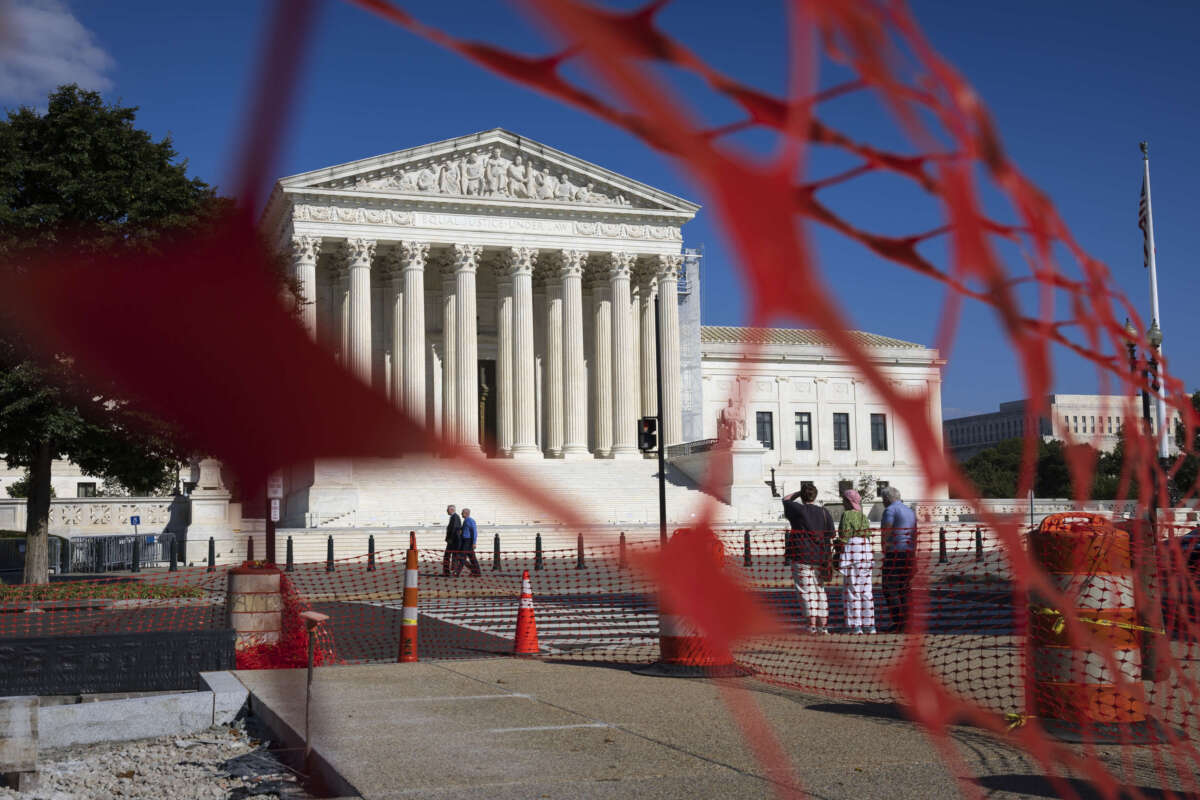A Democratic U.S. senator has introduced legislation that would drastically reform the Supreme Court, proposing, among other items, expanding the number of justices to 15 members.
Sen. Ron Wyden (D-Oregon) introduced the bill on Wednesday. With the Senate narrowly divided with a slight Democratic majority, and the House of Representatives currently controlled by a similarly narrow Republican majority, passage or even consideration of the bill is highly unlikely during this congressional term. Still, Wyden is hopeful that aspects of the bill could be passed in the future, with the goal of reestablishing public confidence in the Court amid a series of ethics scandals.
“I think we can all agree it’s time to reform the Supreme Court. As of today, I have the bill to do it,” Wyden said on X.
The bill proposes increasing the number of justices on the Court from nine to 15 over the next dozen years. During this time, presidents would nominate justices on a regular basis, every first and third year of a term. The bill would also forbid the Senate from stonewalling nominees from a president — once a nominee is selected by the Judiciary Committee, the Senate would be required to conduct a full vote on the nomination within 180 days.
Advocates for court expansion note that it would be beneficial for many reasons — for example, it could reduce the politicization of the nomination process, as a single nominee on a 15-member court would have less sway on final decision-making than a nominee on a nine-member court would.
The bill would also place new restrictions on the Supreme Court, including limits on how justices can issue rulings on laws that have been passed to ensure a greater respect for judicial precedent. Justices would still be able to rule on the constitutionality of federal actions and state matters with a simple majority decision. But on legislation passed by Congress and signed into law by a president, a new “check” would be established, requiring two-thirds of the Supreme Court to find the law unconstitutional in order for their verdict to hold weight.
Justices would also be subjected to yearly IRS audits that would be released to the public, with nominees to the Supreme Court required to release at least three years of their most recent filings before being considered by the Senate for approval. Under Wyden’s plan, justices could also be recused more easily — the bill would eliminate the current standard where justices decide, individually, whether they should recuse themselves, and instead allow two-thirds of the Court to decide whether a justice should sit out a case.
Discussing his plan with The Washington Post, Wyden explained that his proposals were needed to increase confidence in — and lessen the politicization of— the Supreme Court. Said Wyden:
It’s not an atomic secret that the process for selecting justices is politicized. You’ve got this thoroughly politicized process resulting in a Supreme Court that now frequently issues sweeping rulings to overturn laws and upend precedents. We are proposing a way to restore some balance between the three branches of government.
Polling does indeed show that most Americans have a low opinion of the Supreme Court. In a Marquette University Law School poll that was published last month, just 43 percent of respondents said they approved of the Court’s actions in recent years. Meanwhile, nearly 6 in 10 respondents (57 percent) said they disapproved of the Supreme Court.
Much of the disdain for the current incarnation of the Court is likely due to the lack of an enforceable ethics code. When asked their opinions on the justices’ ethical standards, a plurality of respondents, 36 percent, gave them a “low” or “very low” rating. Another 34 percent described the justices’ ethical standards as “average,” with only 27 percent calling their standards “high” or “very high.”
A terrifying moment. We appeal for your support.
In the last weeks, we have witnessed an authoritarian assault on communities in Minnesota and across the nation.
The need for truthful, grassroots reporting is urgent at this cataclysmic historical moment. Yet, Trump-aligned billionaires and other allies have taken over many legacy media outlets — the culmination of a decades-long campaign to place control of the narrative into the hands of the political right.
We refuse to let Trump’s blatant propaganda machine go unchecked. Untethered to corporate ownership or advertisers, Truthout remains fearless in our reporting and our determination to use journalism as a tool for justice.
But we need your help just to fund our basic expenses. Over 80 percent of Truthout’s funding comes from small individual donations from our community of readers, and over a third of our total budget is supported by recurring monthly donors.
Truthout has launched a fundraiser to add 500 new monthly donors in the next 10 days. Whether you can make a small monthly donation or a larger one-time gift, Truthout only works with your support.
